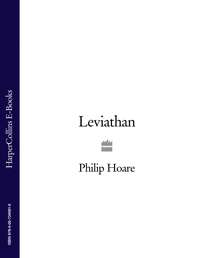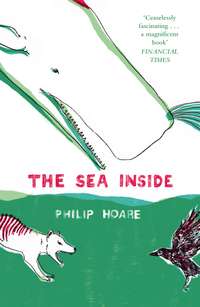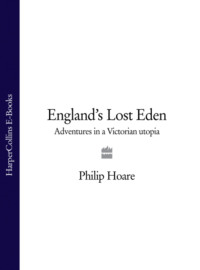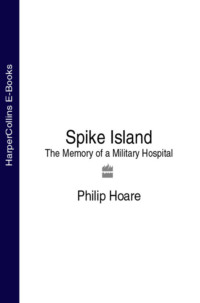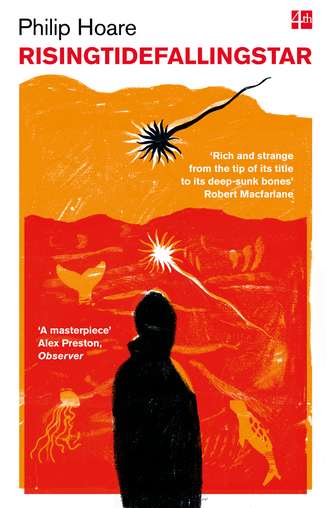
Полная версия
RISINGTIDEFALLINGSTAR
Finally, Eden fills his lungs with air and dives head-first, past luminous tuna, plunging as deep as he can. His body bursts with bubbles. He is aware of a flashing bright light, like a lighthouse in his brain. He feels he is tumbling down an interminable stairway. ‘And somewhere at the bottom he fell into darkness. That much he knew. He had fallen into darkness. And at the instant he knew, he ceased to know.’ Eden, this handsome sailor whose body is described as solid, hewn and tanned, is compressed by the weight and darkness of the sea, falling asleep on its bed, so still that a shake of the shoulder could not wake him. He has been sacrificed to his own ideals, his own masculinity. London said his novel was about a man who had to die, ‘not because of his lack of faith in God, but because of his lack of faith in men’. His writing is vivid enough to recall his own youthful attempt to drown himself in San Francisco Bay, when ‘some maundering fancy of going out with the tide suddenly obsessed me’. ‘The water was delicious,’ he wrote. ‘It was a man’s way to die.’
There have been moments in the water when I felt they might be my last. One dark November afternoon I swam off Brighton, under the shadow of its burnt-out West Pier, while a murmuration of starlings eddied about the rusting ribs above me. I hadn’t realised, until I entered the water, how strong the undertow was; or, as I swam out, how it would take me up, take control and tip me head over heels before dragging me back out.
I’d lost my grip on the world. The heavy pebbles of the beach rolled beneath me, and in the falling darkness, as the lights came on along the esplanade, I thought how banal it would be to die within sight of a dual carriageway and a row of fish-and-chip shops and burger bars. And I wonder, when I am dead, what thoughts will be left in my head, like the black box recorder of a downed plane.
Another time, on Dorset’s West Bay, under its towering cliffs, the tow played a similar trick. I quickly realised what I had done, and tried to climb out. Again I was turned over for my impudence and thrown face-down on the shingle, my features squashed like a peat bog man. Mark told me this was the way surfers smashed their faces, and that evening in town, someone warned me that the beach was notorious, and that only a few months before a young man had drowned there.
And I thought about Virginia Woolf’s body being taken out, as if her death were a culmination of all her words, moving inexorably towards the sea.
It’s odd to return to the books I was required to read at college, their unbroken backs covered in clear plastic to protect them against some future event, preserving them for a time when I would actually understand them, although their pages are now vignetted in brown, as if the sun had penetrated their closed edges. They wait for me to open them, to bring them back to life, familiar and strange and dangerous, as though I were reading them for the first time.
To the Lighthouse is set in the Hebrides, but it draws on Woolf’s childhood holidays in Cornwall, and memories of her Victorian mother. Mrs Ramsay hears and feels the waves as they ‘remorselessly beat the message of life’; they make her think of ‘the destruction of the island and its engulfment in the sea’. At night, as her guests sit around the candlelit table, she looks out of the uncurtained windows through the dark rippling glass – ‘a reflection in which things waved and vanished, waterily’, as if all the world was at sea – and she thinks of herself as a sailor who, if the ship had sunk, ‘would have whirled round and round and found rest on the floor of the sea’. In the distance, the lighthouse stands tall and white on a rock.
The water possessed an ambivalent power for Woolf. One moonlit night, when she was a young woman, she and Rupert Brooke swam naked in the river Cam at Byron’s Pool, named after the poet, who had swum there when he was at Cambridge. Brooke was proud of his improbable and Byronic ability to emerge from the water with an erection. Later, Woolf joined Brooke and his Neo-Pagans, as she called them, when they camped on Dartmoor and swam in the moorland river. Virginia, both prim and liberated, did not quite feel at ease with their attempts to commune with nature; her future biographer Hermione Lee would lament the fact that the nude photographs taken on that occasion did not survive.
Woolf – only an extra O away from being an animal herself, a virgin wolf – had a relationship with the natural world that was both paradoxical and predatory. Nature was unfeeling, going about its business. The beach was no consolation. In To the Lighthouse, after a scene in which ‘the sea tosses itself and breaks itself, and should any sleeper fancying that he might find on the beach an answer to his doubts, a sharer of his solitude, throw off his bedclothes and go down by himself to walk on the sand … to ask the night those questions as to what, and why, and wherefore, which tempt the sleeper from his bed to seek an answer’ – we discover, almost in passing, that Mrs Ramsay has died. In the aftermath, the sea seems to take over the house, as death has overtaken the Ramsays. Of their eight children, Andrew is killed in the war and Pru dies in childbirth. Virginia’s own mother, Julia, died aged forty-nine, and her brother Thoby died of typhoid fever when he was twenty-six years old. For Woolf, the water meant death as well as life.
What remains of the Ramsay family and their friends return ten years later. The house, once so full, has stood empty; the elements threaten to overtake it. We expect the deluge of war to have washed it away. But it is rescued by the housekeeper, to whom Mrs Ramsay appears as a ‘faint and flickering’ image, a kind of ghost, ‘like a yellow beam or the circle at the end of a telescope, a lady in a grey cloak, stooping over her flowers’. The memory is electric, almost cinematic: Virginia’s mother Julia was photographed by her aunt, Julia Margaret Cameron, more than fifty times, her profile turned this way or that, her smooth hair, glaucous eyes and strangely vacant face the same as her daughter’s, wearing a black gown, white cuffs and collar, caught on the path at Freshwater, moving in her dark clothes; then not moving, stilled in the instant, then moving on, ‘the Star like sorrows of Immortal Eyes’.
So too Virginia would pose for Vogue in her mother’s dress in 1924, ravished by a Pre-Raphaelite sea, acting as her own sepia ghost, rehearsing her last scene, floating down the Ouse as Ophelia, ‘her clothes spread wide, | And mermaid-like, awhile they bore her up’. After her father died, and Virginia and her orphaned siblings moved to Bloomsbury, she hung Cameron’s fantastical portraits of famous men and fair women in the hallway as an ironic gesture. For all her modernism, Virginia was anchored in a Victorian past, shaped and damaged by its history, and her own.
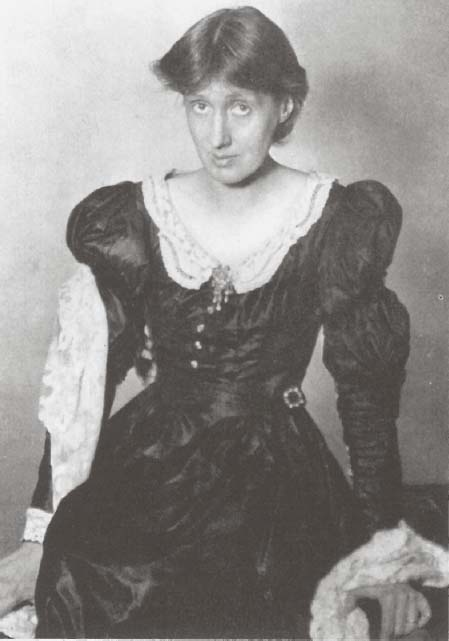
Those remote summers by the sea would remain with her. In her book, the ferocious Atlantic becomes a character itself, like the moor in Wuthering Heights or the whale in Moby-Dick (of which she owned two copies, and which she read at least three times). ‘In both books,’ she wrote in an essay on Brontë and Melville in 1919, ‘we get a vision of presence outside the human beings, of a meaning that they stand for, without ceasing to be themselves.’ Woolf’s white lighthouse is Melville’s white whale; an impossible mission over unfathomable waters.
Cam, the riverishly-named youngest Ramsay daughter, dangles her hand in the waves as she and her brother reluctantly accompany their father on the long-postponed trip to the lighthouse. Out at sea they become becalmed, and in her dreamy, deceptive state, Cam’s mind wanders through the green swirls into an ‘underworld of waters where the pearls stuck in clusters to white sprays, where in the green light a change came over one’s entire mind and one’s body shone half transparent enveloped in a green cloak’. As blank and ever-changing as it is, as calm or crazed, the sea could embody ecstasy or despair; it was a mirror for Woolf’s descent into madness, a process made profound by knowing what was about to happen. She might have been enchanted by Ariel. ‘I felt unreason slowly tingling in my veins,’ she would say, as if her body were being flooded by insanity or filled with strange noises: birds singing in Greek; an ‘odd whirring of wings in the head’.
Cam seems besieged by the sea, by a numb terror and ‘a purple stain upon the bland surface as if something had boiled and bled, invisibly, beneath’. Meanwhile ‘winds and waves disported themselves like the amorphous bulks of leviathans whose brows are pierced by no light of reason’. Eventually the Ramsays reach the lighthouse, but even that epiphany is darkened by the fact that they pass over the place – if water could be said to have a place – where their fisherman had once seen three men drown, clinging to the mast of their boat. All the while their father, as gloomy and tyrannical as Ahab, dwells on William Cowper’s doomy poem, ‘The Castaway’: ‘We perish’d, each alone: | But I beneath a rougher sea, | And whelm’d in deeper gulfs than he.’ When, as a young woman, Virginia had heard of the fate of Titanic, she imagined the ship far below, ‘poised half way down, and become perfectly flat’, and its wealthy passengers ‘like a pancake’, their eyes ‘like copper coins’. Later, to another friend, she said, ‘You’ll tell me I’m a failure as a writer, as well as a failure as a woman. Then I shall take a dive into the Serpentine, which, I see, is 6 feet deep in malodorous mud.’ To her even the bridge over the monstrously-named inland sea in a London park was a white arch representing a thousand deaths, a thousand sighs.
While writing To the Lighthouse, Woolf read of another disaster. On the first ever attempt to fly westbound across the Atlantic, the wealthy Princess Löwenstein-Wertheim had perished, along with her pilot and co-pilot. ‘The Flying Princess, I forget her name, has been drowned in her purple leather breeches.’ In her mind’s eye Virginia saw the plane running out of petrol, falling upon ‘the long slow Atlantic waves’ as the pilots looked back at the ‘broad cheeked desperate eyed vulgar princess’ and ‘made some desperate dry statement’ before a wave broke over the wing and washed them all into the sea. It was an arch nineteen-twenties scene; Noël Coward out of The Tempest. ‘And she said something theatrical I daresay; nobody was sincere; all acted a part; nobody shrieked.’ The last man looked at the moon and the waves and, ‘with a dry snorting sound’, he too was sucked below, ‘& the aeroplane rocked & rolled – miles from anywhere, off Newfoundland, while I slept in Rodmell’. Ten years later Virginia drove past a crashed aeroplane near Gatwick and learned afterwards that three men on board had died. ‘But we went on, reminding me of that epitaph in Greek anthology: when I sank, the other ships sailed on.’
The sea echoes over and over again in Woolf’s work, with the rhythm of moon-dragged tides. Having finished To the Lighthouse, she entered a dark period, exhausted, fighting for breath; yet out of it she sensed the same vision of presence beyond being that she had seen in Brontë and Melville; something ‘frightening & excited in the midst of my profound gloom, depression, boredom, whatever it is: One sees a fin passing far out.’ It was a deep, cryptic image, hard to diagnose or discern, as she confessed to her diary a year later, summoning ‘my vision of a fin rising on a wide blank sea. No biographer could possibly guess this important fact about my life in the late summer of 1926: yet biographers pretend they know people.’
As a boy on holiday in Dorset, I saw a distant glimpse of dolphins, arcing through the water off Durleston Head, a rocky promontory held out in the grey English Channel. As a girl holidaying in Cornwall, Woolf had seen cetaceans too: one family sailing trip in the summer of 1892 ‘ended hapily [sic] by seeing the sea pig or porpoise’; her nickname for her sister Vanessa, with whom she was extraordinarily close, was Dolphin. And in The Waves, the book that followed To the Lighthouse, and which became her most elegiac, internalised work, her vision returned as one character watches a fin turn, ‘as one might see the fin of a porpoise on the horizon’.
The sickle-sharp shape seen against the featureless sea – something there and not there – is the emblem of knowing and unknowingness. It is not the real dolphin leaping through the waves, or the curly-tailed, boy-bearing classical beast, or the mortal animal sacrificed and stranded on the sand, but something subtly different: the visible symbol of what lies below, swimming through the writer’s mind as a representation of her own otherness. In Woolf’s play Freshwater, a satire on the bohemian lives of Julia Margaret Cameron and Tennyson on the Isle of Wight, a porpoise appears off the Needles and swallows one of the characters’ engagement ring; in The Years, ‘slow porpoises’ appear ‘in a sea of oil’; and in a vivid episode in Orlando, a porpoise is seen embedded in the frozen Thames alongside shoals of eels and an entire boat and its cargo of apples resting on the river bed with an old woman fruit-seller on its deck as if still alive, ‘though a certain blueness hinted the truth’.
Woolf made a sensual connection between the porpoise and her lover. Vita Sackville-West, tall and man-womanish – a kind of Elizabethan buccaneer clad in her brown velvet coat and breeches and strings of pearls and wreathed in the ancestral glamour of her vast house, Knole, where the stags greeted her at the door and even wandered into the great hall – morphed from she-pirate into a gambolling cetacean for Virginia. It was a dramatic appropriation, dragging the strange into the familiar. Perhaps it was no coincidence that Shakespeare – for whom gender and species were fluid states – often linked whales, living or stranded, with royal princes; or that Woolf’s name evoked both the queen and her colony.
At Christmas 1925 the two women, who’d just spent their first night together, went shopping in Sevenoaks, where they saw a porpoise lit up on a fishmonger’s slab. Virginia elided that scene with her elusive paramour out of the sixteenth century into the twentieth, Vita standing there in her pink jersey and pearls, next to the marine mammal, both curiosities. ‘I like her & being with her, & the splendour,’ Woolf admitted to her diary like a schoolgirl, ‘she shines … with a candlelit radiance, stalking on legs like beech trees, pink glowing, grape clustered, pearl hung … so much in full sail on the high tides, where I am coasting down backwaters.’ ‘Aint it odd how the vision at the Sevenoaks fishmongers has worked itself into my idea of you?’ she wrote to Vita two years later, and proceeded to replay the image at the end of Orlando, when her gender- and time-defying hero/ine returns home in 1928 – ‘A porpoise in a fishmonger’s shop attracted far more attention.’ Meanwhile Vita made her own boast, of ‘having caught such a big silver fish’ in Virginia.
Orlando is an updated fairy tale which collapses four centuries of English history into a whimsical modernist fantasy. History rushes by, briefly arrested in close-up, acid-trip details: the grains of the earth, the swelling river, the long still corridor in Orlando’s sprawling palace which runs as a conduit into time, as if a production of The Tempest were being acted out silently at the end of its wood-panelled tunnel. Orlando is both player and prince, like Elizabeth, or Shakespeare’s Fair Youth, Harry Southampton, animal and human, a chimera out of a Jacobean frieze, ‘stark naked, brown as a satyr and very beautiful’, as Virginia saw Vita. As the deer walked into Knole’s great hall, so Orlando moves through species, sex and time; she too might become a porpoise strung with baroque pearls, animating the unknown sea.
Конец ознакомительного фрагмента.
Текст предоставлен ООО «ЛитРес».
Прочитайте эту книгу целиком, купив полную легальную версию на ЛитРес.
Безопасно оплатить книгу можно банковской картой Visa, MasterCard, Maestro, со счета мобильного телефона, с платежного терминала, в салоне МТС или Связной, через PayPal, WebMoney, Яндекс.Деньги, QIWI Кошелек, бонусными картами или другим удобным Вам способом.


